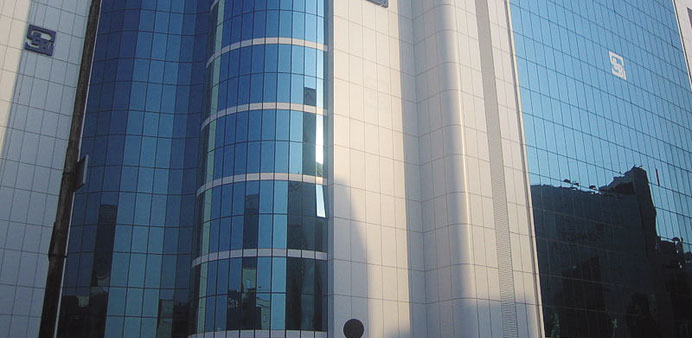SEBI Bhavan, the head office of the Securities and Exchange Board of India in Mumbai. The SEBI accused Hong Kong-based multi-asset fund Factorial Capital Management of shorting L&T Finance Holdings before the announcement of a share sale in mid-March.
India’s stock market regulator may investigate the domestic unit of Credit Suisse Group to determine whether price sensitive information about a share deal that the authority has ruled to be insider trading was leaked by the investment bank.
The Securities and Exchange Board of India (SEBI) on Thursday accused Hong Kong-based multi-asset fund Factorial Capital Management of shorting L&T Finance Holdings before the announcement of a share sale in mid-March.
SEBI said it may probe whether Credit Suisse staff had revealed to Factorial that the L&T Finance deal would be done at a discount, but the regulator did not accuse the bank of any wrongdoing.
Instead, the regulator focused its investigation on Factorial, barring the hedge fund from trading Indian securities. The hedge fund has 21 days to respond.
“At this stage, the channel of communication of the unpublished price sensitive information is not ascertainable,” SEBI said in its case. “This aspect needs thorough investigation so as to come to a definite conclusion.” In a statement, Factorial said the allegations by SEBI were “without merit” and that it would fully co-operate with the investigation.
A Credit Suisse spokeswoman in Hong Kong declined to comment. Most investment banks restrict staff access to price sensitive information to avoid leaks
The accusations come after SEBI chairman UK Sinha stepped up the fight against insider trading and share manipulation, hoping to stamp out rampant practices that were a key factor behind the exodus of $5.15bn in retail investments from stock funds over the past five years.
The regulator, notorious for its timid enforcement of market violations, is also overhauling its two-decade-old insider trading law to give it more muscle, but these amendments have yet to come into effect.
“It’s quite surprising to see such swift action,” Sai Venkateshwaran, a partner at KPMG in Mumbai said, referring to the Factorial case. “SEBI is trying to put in place better enforcement mechanisms to ensure speedy action,” he added.
Lawyers said the maximum penalty for an insider trading conviction was currently 250mn rupees ($4.22mn) or three times the profit made on fraudulent trades. In a seven-page document, SEBI said it had established that Factorial was approached by Credit Suisse about their interest in a potential share sale of L&T Finance by its majority owner Larsen & Toubro Ltd, India’s biggest engineering company. Such an approach is part of the process of any deal.
SEBI said Factorial then aggressively built a big short position in L&T Finance derivatives on March 13 – accounting for 84.15% of all its outstanding futures and options positions - and covered its shorts through purchases in the heavily discounted share offering.
L&T Finance shares fell 7.2% to Rs79.15 on March 13. At the close of the session L&T announced it would sell 55.5mn shares in L&T Finance at a floor price of Rs70 per share.
SEBI said Factorial had netted a profit of around Rs200mn ($3.37mn) in a transaction it called “aberrant and suspicious.”
“It is highly unlikely that one who does not have any exposure in the scrip will take such an aggressive short position,” SEBI said, “unless it had some definite information about fall in price of the scrip in near future.” Scrip refers to the company’s stock.
Factorial returned 2.04% in March, its highest monthly gain since December 2012, according to a newsletter obtained by Reuters. Equities and the financial sector contributed the most to the gains in March, the letter showed.
The newsletter did not disclose the amount of money managed by Factorial.
SEBI added its examination of chat transcripts provided by Credit Suisse Securities (India) Private Ltd showed that on March 13, before the L&T announcement, brokers at the investment bank had exchanged messages such as “likely to come in at a steep discount about 70 types” amongst themselves.
But SEBI said it could not determine the extent to which such information had been shared, noting that the information on the pricing could have also come from others involved in the share sale process, such as other investors.
The drive against insider trading comes after SEBI last year received enhanced investigation powers from parliament, including the ability to monitor call records.

